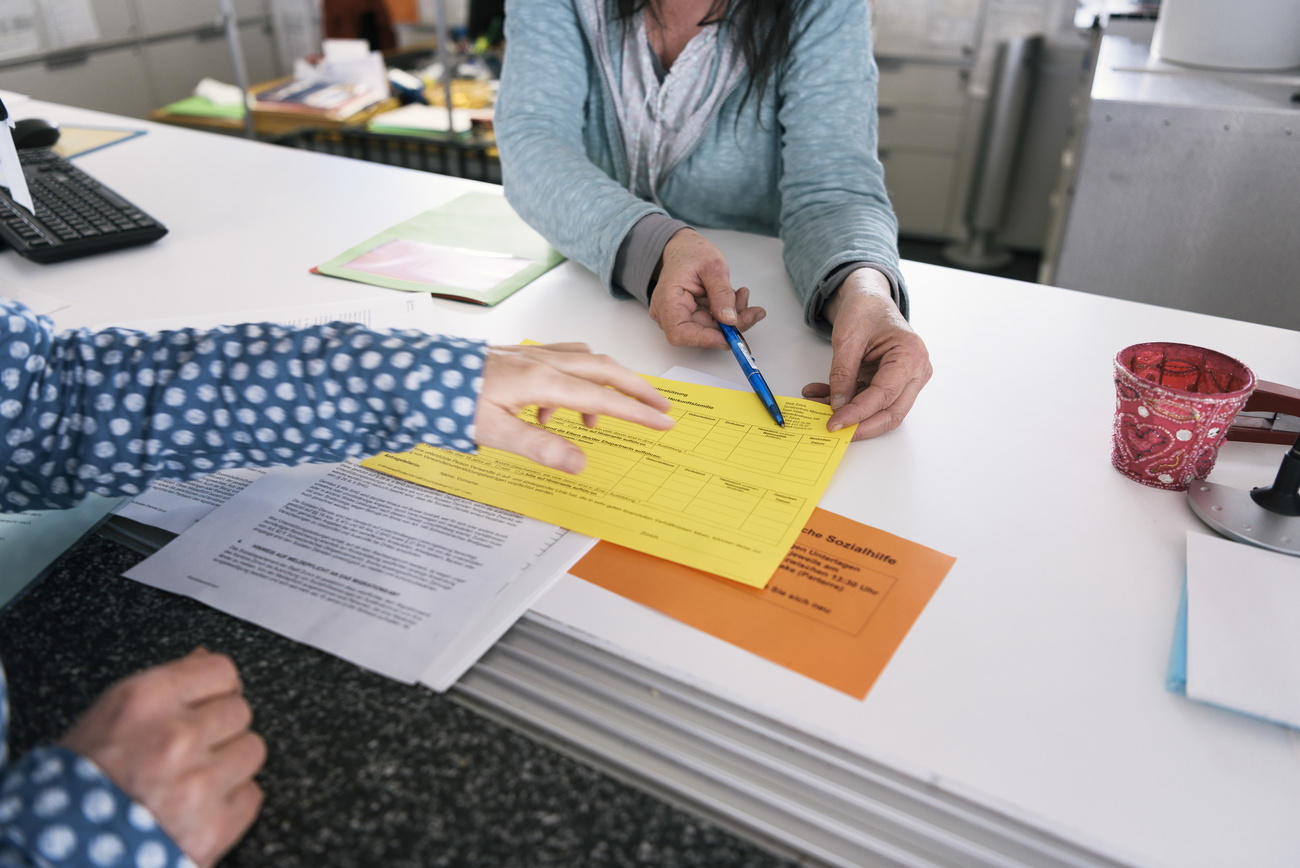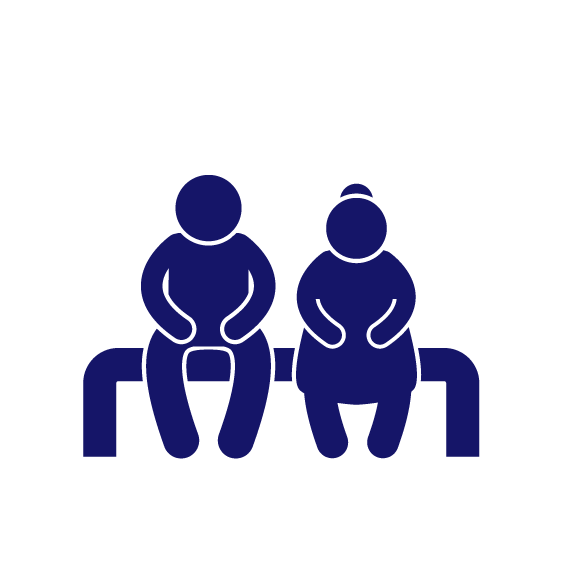How Swiss welfare works

If you are unable to provide for yourself or your family in Switzerland, there are systems in place to help.
More than 270,000 people in Switzerland receive social assistance, which is distributed at the cantonal level. Half are Swiss. One third are under 18 years old. A quarter of the adults are among the working poor.
In 2018, the cantons spent CHF2.8 billion ($2.85 billion) on welfare. According to the Swiss Conference for Social AssistanceExternal link, “the welfare system makes an essential contribution to social harmony in Switzerland and guarantees that all people can live in dignity”.
Who’s eligible?
Welfare is for people living below the poverty line. The subsistence minimum income in Switzerland is defined as CHF2,259 per month for a single person and CHF3,990 for two adults with two children. (In comparison, the gross median salary in Switzerland is around CHF6,500 per month.)
If you are a Swiss citizen or you have a Swiss residence permit, you can receive welfare in Switzerland. Asylum seekers and refugees are also eligible. If you don’t fall into any of these categories, you can still apply for emergency assistanceExternal link.
You are not eligible if you already receive social security benefits or if you still have significant assets in the bank or in the form of property. Pensioners who are struggling can apply for supplementary benefits.
How much will I get?
Welfare payments cover the bare necessities. For basic needs like food, clothing and personal care, the amount is about CHF1,000 per month for a single person. On top of that, individuals get about CHF1,000 for housing and CHF200 for health insurance.
In addition, you can request a reduction on your health insurance premium. Depending on the canton, you may need to re-apply each year.
Applicants who are in debt receive an extra CHF200 per month.
What do I have to do?
A budget advisor will help you come up with a plan to improve your financial situation. You will be expected to look for a job or participate in an integration programme.
+ How unemployment works in Switzerland
Any income, including monetary gifts or reimbursed health costs, must be reported so that the welfare payments can be adjusted downwards.
Failure to observe requirements, perform duties or declare your situation accurately will result in the payments being docked or withdrawn. Foreigners who cheat can be deported.
What restrictions are there?
Your housing must be among the cheapest available in your area; local social authorities set the guidelines. If your apartment is deemed too expensive, you’ll be told to find somewhere more affordable. If you’re under 25, you’re generally expected to live with your parents or to find a room in a shared flat.
There’s no budget for a car unless you can’t reach your workplace via public transport, or you need a car for health reasons. Expenses for pets are not covered, either.
Can I still become a Swiss citizen?
If you are receiving social welfare benefits, you are not eligible to apply for Swiss citizenship. At the federal level, you can’t have been on welfare in the past three years. Cantons Bern and Aargau have recently increased the waiting period to ten years.
Can I go on vacation?
Yes, with permission from the local social welfare office. The costs won’t be covered by social assistance, but there are foundations that offer inexpensive holiday options for people without means.
Will I have to pay the money back?
Yes, if your financial situation improves. In some cantons, you only have to repay the money if you inherit a large sum or win the lottery. Across Switzerland, the obligation to repay expires five to 20 years after the last welfare payment.
Half of the welfare recipients in Switzerland are back on their feet again within a year; another 20% need assistance for one to two years. Some 8% require help for six years or more.
You can contact the author of this article on Twitter: @SMisickaExternal link

More
Welfare payments in 2018 averaged CHF10,379 per person

More
Who can collect Swiss unemployment benefits?

In compliance with the JTI standards
More: SWI swissinfo.ch certified by the Journalism Trust Initiative














You can find an overview of ongoing debates with our journalists here . Please join us!
If you want to start a conversation about a topic raised in this article or want to report factual errors, email us at english@swissinfo.ch.